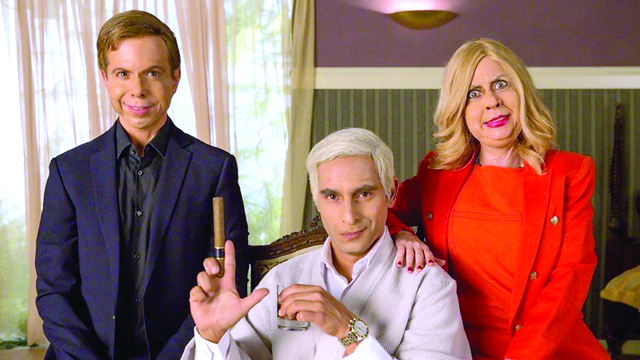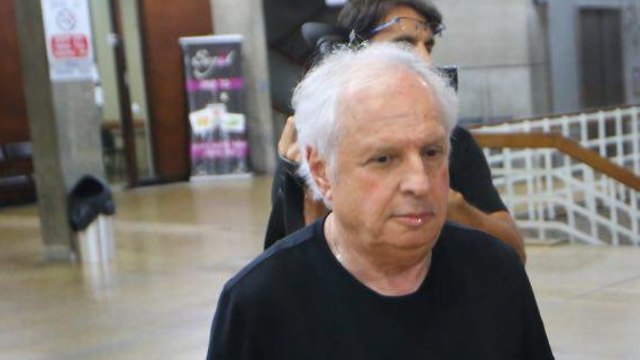Sometimes what is really surprising is not what happens, but what doesn't happen. Benjamin Netanyahu's many criminal investigations are an example.
A huge battle took place in Israel a few months ago over the transfer of prosecution's evidence in three cases involving the prime minister, referred to as Cases 1000, 2000, and 4000. Case 1000 concerns illicit gifts allegedly received by Netanyahu from businessmen, while Cases 2000 and 4000 involve alleged quid-pro-quos with publishers (including Ynet's publisher) for positive media coverage.
By law, the prosecutors must hand over these materials to the lawyers of all those investigated, as part of preparations for hearings and trials. The lawyers may read the investigative evidence – but not publish them.
That's the law, but Israel being Israel, as soon as the evidence is turned over, there's always someone who runs to tell their buddies – like a lawyer who wants to improve their relation to a journalist, or to a police officer, or to a prosecutor.
Netanyahu worried that publication of materials just before the elections would hurt him at the ballot box. With the prime minister pressuring him, the attorney general caved. The evidence was made available to the prosecutors only after the elections. Then it took more time before all the lawyers actually picked them up. And then… nothing.
Dozens of confessions of state witnesses, hundreds of hours of recordings, thousands of pages of testimony, hundreds of thousands of words, and all that buried treasure hasn't led to any new insight, and it hasn't given birth to any drama. Crickets, you might say.
With all due respect to our colleagues, our great heroes the legal affair correspondents, what they have managed to coax out of their sources has not been worth the effort.
Where are the killer quotes from the interrogators and suspects?Where's the sketch on satirical TV show "Eretz Nehederet" (A Wonderful Country)? Weak stuff indeed.
The media works by its own rules. No one expects the nightly TV news to open with the headline, "No news on Netanyahu's cases." If there's no new revelation, then they have to make noise out of whatever sounds new. And if there's nothing new, they expand the commentary.
The lack of revelations raises some questions. Firstly, what and why exactly was Netanyahu battling tooth and nail to prevent the distribution of the investigation materials before the elections? What did he worry about, what frightened him, what does it say about him?
The second question is even more irritating. Maybe the narrative that has accompanied all the investigations into the prime minister are based on an error. (Not in terms of Netanyahu's constant defense, "There's nothing to see because there was nothing," for there is definitely something there.) But what there is does not give the impression of a sophisticated criminal mastermind, but rather of someone of weak character, brought down by his cravings and appetites.
He has a rare gift for speaking, yes. But let's place the prime minister's marketing abilities and international experience to one side, and let's talk about his cravings separately. Netanyahu isn't the victim of hostile elites; he's a victim of his own caprice, and a victim of his own making alone.
The world is full of politicians that display the same symptoms, with the same proportion of parasitic and victim complexes - "I deserve" and "they're screwing me over". Silvio Berlusconi and Donald Trump are worse than Netanyahu, and more brazen than him too.
Even Case 4000, the worst of the bunch, reveals Netanyahu's capitulation to his own caprice rather than a well-organized plot. (In Case 4000, Netanyahu allegedly planned to ease regulations for telecommunications mogul and Bezeq chief Shaul Elovitch, in exchange for positive media coverage on Elovitch's news website.)
Netanyahu, who was the communications minister, didn't understand the nature of his ministry, nor the power it bestowed.
He was already suspicious of breach of trust when he sought to use the ministry's regulatory authority to enrichen his wealthy friends, and this is before he got in trouble because of Elovitch.
Like a moth to a flame he was drawn to the word "media." If the ministry had kept its original name, "Ministry of the Postal Service," he might have been saved from the whole imbroglio.
The problem is the price that Israelis are required to pay for this debacle. In September, we'll go a third time to elections at Netanyahu's whim, but the problem isn't the caprice of a single person.
The elections are a small price to pay, and we can measure the cost in shekels. Much worse is the price we are paying when we lose our collective agreement, when trust in the legal system is destroyed, when there's political incitement, when we are pulled in the direction of the extreme right.
We have a new justice minister, who broke his commitment to be faithful to the State of Israel and its laws even before the ink dried on his signature. Will he instead commit to be faithful to Netanyahu when that fateful day comes? One needs to be either very gullible or very arrogant to believe he will not.





















